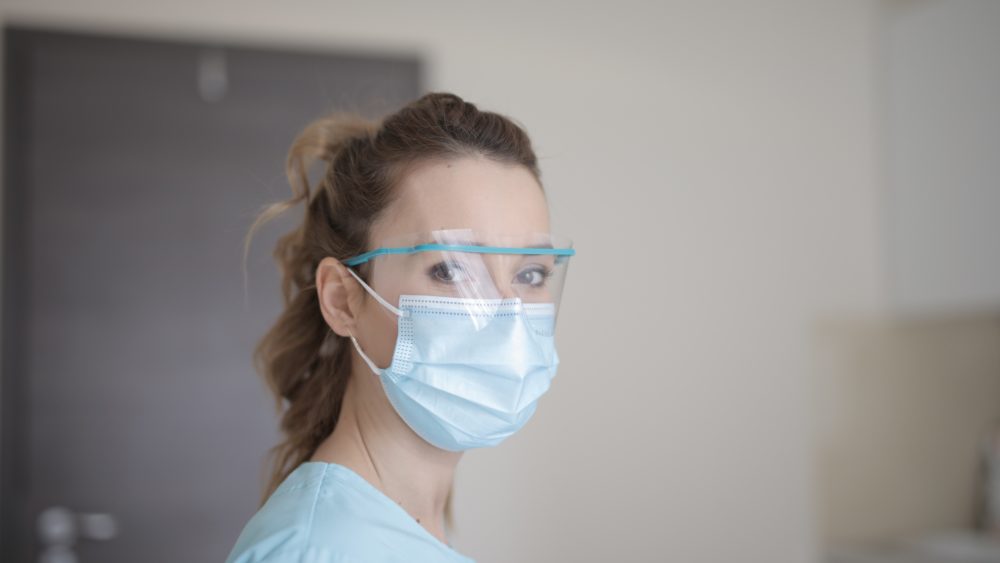Frontline health workers dealing with the COVID-19 outbreak are not being provided adequate Personal Protective Equipment to help protect themselves during this crisis.
We are not only seeing a lack of solidarity from European governments to health and care workers but also a lack of solidarity between European governments to effectively coordinate a response to this crisis.
This week the UK government came under fire for purportedly missing three chances to join an EU scheme to bulk buy Personal Protective Equipment (PPE) to help fight the COVID-19 pandemic. On Monday, the Guardian reported that the UK was not involved in EU attempts to procure several millions of pounds worth of PPE on the 28th February and the 17th March. The UK government initially stated that it was not in the EU, and would therefore be “making its own efforts.” But the government then U-turned saying it did not receive an email to be part of the initiative. An official spokesman for the prime minister told journalists “Participating in this scheme would not have allowed us to do anything we have not been able to do ourselves.”
Lack of suitable PPE throughout EU states betrays a fundamental disregard for workers on the frontline of this crisis. PPE shortages endanger the lives of healthcare professionals and limit the availability of staff who can deal with this crisis. It also has an impact on mental well-being. Chief Executive of NHS Practitioner Health, Lucy Warner, has stated that “we are likely to see NHS staff suffering similar symptoms to shellshock.” A study published by the Lancet showed that 70% of health workers on the frontline in Hubei suffered from extreme levels of stress, 50% had depressive disorders, 44% had anxiety and 34% insomnia.
Not only are frontline staff working long shifts, and trying to deal with the psychological and physical trauma of patients, but they also do so with the looming prospect that they will more than likely catch this virus due to poor provision of adequate PPE. Rosie Hughes, a UK based junior doctor, wrote in the Guardian that “testing positive for the same virus that has killed so many of my patients is obviously a daunting prospect but it felt inevitable given the lack of safe PPE.”
The UK is not the only EU country to suffer from a lack of PPE. More than 100 deaths in Italy are from Doctors and Nurses who account for more than 8% of all infections. Severe PPE shortages in Spain have also contributed to at least 12,000 healthcare professionals contracting the virus. According to Forbes some staff at Madrid’s La Paz hospital are left with little choice but to reuse gowns when treating different patients and double up on flimsy masks in the absence of more sophisticated respirator masks.
Within this crisis we can also see an absence of solidarity within the EU. Germany initially imposed a ban on the export of masks, goggles and gloves due to a shortage in early March. In the coming days and weeks, staff are getting ready to receive 1.5 billion euros worth of PPE which seems somewhat late considering discussions began in early February and procurement only began on the 17th March.
Through this crisis, we can help rebuild a Europe that treats its workers fairly and with solidarity.
DiEM25 believes that during this crisis there is an opportunity to help foster EU-wide solidarity. The lack of adequate PPE provided to frontline workers dealing with this crisis betrays a complete disregard for their physical or mental well-being. However, it also demonstrates a complete lack of unity between European nation states in their efforts to coordinate an effective response to PPE shortages.
DiEM25’s 3-point plan outlines a cohesive response to the crisis. It would provide a €1 trillion in eurobonds from the ECB, which would European nations to borrow whilst securing a stronger union. This borrowing will help provide frontline medical staff with the PPE and resources needed to tackle this crisis.
Do you want to be informed of DiEM25's actions? Sign up here















